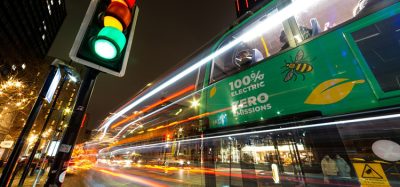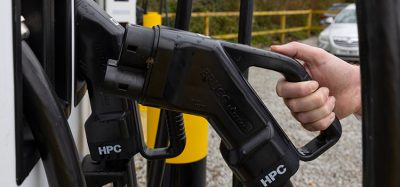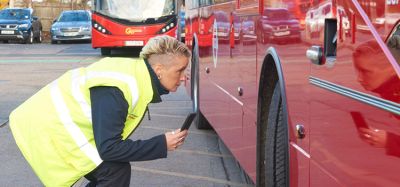Bus industry needs to accelerate innovation to save fuel – and to tackle climate change
- Like
- Digg
- Del
- Tumblr
- VKontakte
- Buffer
- Love This
- Odnoklassniki
- Meneame
- Blogger
- Amazon
- Yahoo Mail
- Gmail
- AOL
- Newsvine
- HackerNews
- Evernote
- MySpace
- Mail.ru
- Viadeo
- Line
- Comments
- Yummly
- SMS
- Viber
- Telegram
- Subscribe
- Skype
- Facebook Messenger
- Kakao
- LiveJournal
- Yammer
- Edgar
- Fintel
- Mix
- Instapaper
- Copy Link
Posted: 9 November 2016 | Kevin O’Connor (UK Bus) | No comments yet
Kevin O’Connor, Arriva’s Managing Director, UK Bus, explains why the bus industry needs to innovate in order to cut fuel consumption and help tackle climate change.
Fuel costs are a significant factor for all bus operators across the UK and Europe with high prices cutting into the ability of the industry to invest in new fleet and technology. But if the bus sector wants to thrive further, technological innovation that helps cut its vulnerability to fuel prices has to be prioritised.
As one of the major bus operators in the UK, and with operations across 14 European countries, we are committed to taking the lead on adopting technology that could help cut fuel consumption.
Over the last 12 months, we’ve been innovating to cut our fuel consumption and to reduce our carbon emissions. As our newer fleets are already highly efficient, we’ve focussed primarily on older, existing fleets.
“We have now installed fuel-saving technology on 3,300 of our buses”
Our work started in the UK, where we have now installed fuel-saving technology on 3,300 of our buses. The technology, known as Econospeed, will cut fuel costs by around 2%.
The technology, designed and manufactured by Zeta Automotive in Bicester, works by limiting the driver’s ability to accelerate excessively but provides full power when and where it is necessary.
This state-of-the-art technology means that the bus can reduce its fuel usage, cutting costs, and resulting in fewer carbon emissions. Econospeed also has the added benefit of limiting the driver’s ability to accelerate aggressively. This means a far smoother and more comfortable travel experience for passengers.
The technology can be fitted on existing buses, which makes it quicker and more affordable for bus operators to update their fleets. The Econospeed device, which monitors and moderates the signal delivered to the engine control unit, can also be configured and updated remotely, bringing additional savings.
Arriva’s UK rollout, which started 12 months ago is now nearing completion and has been a great success. The new technology is now reducing fuel consumption across the UK, including London, Kent and Surrey, Hertfordshire and Essex, Bedfordshire and Buckinghamshire, the Midlands, Wales, Yorkshire, the North West and the North East.
Our plans now extend beyond the UK. Committed to saving fuel and reducing carbon emissions wherever we operate, we plan to fit our bus fleets across mainland Europe with Econospeed. With Sweden and Spain next in line to benefit, we plan to retrofit roughly 3,280 buses abroad.
“Once the European rollout is complete, we expect to make further savings of around 2%”
Once the European rollout is complete, we expect to make further savings of around 2% on our fuel bill. Over the next five years, our carbon emissions from our fleets across Sweden, Spain, Italy, Denmark, Netherlands, Portugal, Croatia, Slovenia, Czech Republic, Slovakia and Hungary will also be reduced.
The Econospeed technology has proven potential to help the industry leapfrog from buses that are relatively fuel efficient to fleets that are so fuel-efficient that they have a real and positive impact on operating costs. Just for Arriva’s UK bus operations, the approximate 2% reduction in fuel usage could mean savings of up to £4 million a year; a welcome boost in a constrained investment environment for the bus sector.
But it’s not all about the money. Econospeed is also helping us to cut our carbon emissions. Earlier this year, UK Prime Minister Theresa May pledged to ratifying the Paris Agreement by the end of 2016. This means reducing carbon emissions by 57% (relative to 1990 levels) by 2050. The bus industry has a vital role in ensuring that the UK hits those commitments.
Unless we invest in innovation like Econospeed, our industry will remain vulnerable to fuel prices – and fail to adapt to climate change, one of the biggest challenges for generations to come.
Related topics
Air Quality, Alternative Power, Fleet Management & Maintenance, Transport Governance & Policy
Related modes
Bus & Coach
Related organisations
Arriva
Related people
Kevin O’Connor








